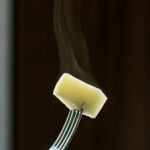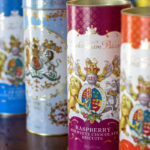David Copperfield, Part 2
Well, well, well . . . here we are again. Where did we stop last time? *flips pages of book, contentedly.* Ah yes. Here we are.
So to recap, yesterday (ok maybe it was more than a day. But close enough) we started the story of David Copperfield, a novel based loosely on the true life of its author, Charles Dickens. Super duper quick recap of what we talked about . . . David is a kid whose dad dies before he is born. He starts life with his young, beautiful mother and his beloved nanny, Clara Peggotty. His mom remarries a super duper mean (rich) guy who makes David’s life hell and sends him away to a horrible boarding school where everyone picks on him and the teachers brutalize him. He meets another boy, Steerforth, whose kindness makes David’s life bearable. Eventually David’s mom dies and his stepdad sends him to work for his own living (at like, 10. Um . . . I know, right?). The horrible child labor factory where David is sent to work almost kills him. He boards with the kind family the Micawbers, who love him like their own but never seem to have any money to pay their bills (and eventually end up in debtor’s prison). Since David knows that losing the Micawbers means that he might be sent back to live with his evil stepfather again (*thunder cracks*), he decides to run away instead. He tracks down his long lost great Aunt Betsy, who stepped out of his life when he was born because he was a boy (and she hates men, due to a lot of speed dating horror stories, or something like that). David adores living with his Aunt and her friend Mr. Dick (a special needs adult man whom Ms. Betsy took in to save from the insane asylum, and who befriends David and gives him the companion and friend he has long wished for).
David eventually grows up, as kids have a way of doing, and his Aunt decides that it’s time to give him a much better education than the one he received at the horrible boarding school. She decides that he will make a good living working in finance, so she pays to have her hedge fund manager (Mr. Wickfield) tutor David in banking and finance. Mr. Wickfield has a daughter, Agnes, about David’s age, and the two become fast friends. Agnes has a crush on David, but David of course, being male, misses it completely and always calls her “my beloved sister” through the book, to the great annoyance of the female readers who may or may not scream at their pages, “SHE IS NOT YOUR SISTER YOU BIG OAF! ASK HER OUT!!!!” Ahem. Don’t ask me how I know this. Is page rage a thing? *looks awkwardly at the floor*

Mr. Wickfield has a creepy redheaded clerk (remember that we mentioned that Dickens often uses redheaded characters as villains, for whatever reason?) who stares at the children in a strange and odd way and makes you uncomfortable. This character is Uriah Heep, and we are about to see just how CA-REEEEEPY he can (and will) be. Meanwhile, David starts an internship at a fancy London financial office run by Mr. Spenlow. David runs into Mr. Spenlow’s daughter one day at work when she comes to see her dad, and fireworks and lightning bolts go off over his head and he falls madly, stupidly in love with her. Unfortunately Dora’s main hobby is shopping, and when David’s Aunt loses all her money (supposedly a bad deal made by Mr. Wickfield), David doesn’t have the financial juice to tempt Dora’s dad to let him marry her anymore. He desperately goes to see Mr. Spenlow to plead his case (“I may be dirt poor but I’m SO CUTE!”), but unfortunately (and most awkwardly), Mr. Spenlow is dead in his office when David comes to see him. Dora blames her dad’s death on the stress of their relationship, and she cuts off all ties with David, who is practically panting at this point but can’t get anywhere near her.
Whew. I think that catches us up to where we are now. Ahem. *sips water* Oh, who are we kidding. *sips wine* Let us continue.
So currently, Aunt Betsy and Mr. Dick are living with David in his tiny apartment in the city, since their big house by the sea is being rented to provide a little income in light of this mysterious loss of Ms. Betsy’s fortune because of the supposed error of her years-faithful financial guy, Mr. Wickfield. You would think that someone gutting your entire fortune and getting you kicked out of your house would make you want to never see him again, but Ms. Betsy oddly seems to harbor no ill will, and they remain great friends with the Wickfields. David is trying to earn enough money to (1) support his Aunt and Mr. Dick, and (2) become rich overnight, somehow, to tempt Dora to marry him. Here, David invents the Pyramid scheme. Just kidding. But he does start trying to write a little in his spare time to make some extra cash, which turns out to be a great decision since he’s talented and enjoys it.
Now– remember way back in the beginning when David was raised by his mom and the beloved nanny, Clara Peggotty? Well, Peggotty was more like family than a servant, and she would sometimes take David to visit her family by the ocean in Yarmouth, a picturesque little fishing village that David falls in love with. Mr. Peggotty is the brother to David’s nanny, and they all treat little David like family. I’ve always loved the descriptions of the old boat that Mr. Peggotty and his family live in. David sees it almost like a pirate hideout– complete with tunnels, rope ladders, and even a ship’s wheel that he and Mr. Peggotty’s daughter, Emily, love to play with by the hour. They run in the surf, find shells, pretend they are pirates, and fall asleep, exhausted and happy, listening to the sounds of the sea crashing on the beach right outside their window. Mr. Peggotty has also taken in his nephew, Ham, a sweet boy who is kind to David and spends hours showing him around, and Mrs. Gummidge, the widow of Mr. Peggotty’s former fishing partner, whom he has taken in when she had no one else. Again, love binds an unlikely group together as family.
David always remembers that beautiful place with longing. Since he is so busy harping on Dora Spenlow, unable to get her out of his mind or work on anything, he decides that maybe he will visit his old friend from school, Steerforth, and see if he wants to take a little vacation to Yarmouth and see how beautiful it is. David goes to visit Steerforth at his huge house and finds that Steerforth’s mom is very rude and snobbish (that darned money disease, again), but she dotes on her only son and doesn’t believe that he ever makes mistakes. She is constantly praising him, bragging on him, and excusing away the horrible things he does by blaming other people. At one point we are introduced to Rosa, the companion of Steerforth’s mother, who has a crazy ridiculous scar on her face. We find out that Steerforth as a child was annoyed at her and threw a hammer at her face (um, yikes?). The moral of this story is, when you throw stuff at people, either make sure you have very poor aim, or throw teddy bears instead of hammers.
David asks Steerforth if he wants to go visit Yarmouth with him, and to David’s surprise and delight, Steerforth agrees. They find out that Emily has grown up to be a rare beauty; in fact, she takes their breath away the first time they see her. They find out that Ham has proposed to Emily (remember, they grew up in the same house but aren’t real siblings), and that Emily eventually accepted. Ham is a super nice guy. He’s decent and hard working and loves Emily dearly. But you know . . . she just doesn’t like him that way. She admires him and knows he’s a good man, but at the end of the day, she’s settling. Uh oh.

And then . . . *mysterious music plays in the background* . . . Steerforth and Emily lock eyes. Time stops. The music fades. Roses grow out of the earth and lightning flashes across the sky! Somewhere I’m sure a full Gospel choir sings. Holy hip boom bang snickerdoodle pants! It’s love at first sight, folks! Again, uh oh.
As they sit around the fire that night, Emily and Steerforth can’t take their eyes off of each other. It appears that Emily has just realized that (1) she can actually set her dating app to search a larger area than Yarmouth, (2) Ham isn’t the only man under 60 left in the world that she could marry, and (3) ahem, Steerforth is hot. At one point in the night Ham drapes a protective arm around Emily’s shoulders, and she shrugs it off like she can’t stand his touch. It’s awkward. It’s the time of the night where everyone would gaze down into a red Solo cup nervously and avoid eye contact.
Steerforth and David wrap up their visit, but Steerforth surprises everyone by saying that he has bought this random fishing boat (Steerforth doesn’t fish, but ok), and he is leaving behind his valet, Littimer, to make sure that it is repainted and rigged again for sailing. Everyone is confused why this rich city person would want a fishing boat in a town where he has never been and may never come again. But he winks and says he will need to come back often to see updates of how the boat is doing; he is also renaming it the “Little Emily.” Suddenly it all makes sense. Oh ho! Steerforth is fishing all right, but not for fish. You are so clever. I love working with you.
On the way back home, Steerforth seems to be having some kind of inner battle with himself. He looks at David and begs him, “Whatever happens, remember me at my best.” It’s a really weird and ominous thing to say, and at this point if you think something terrible is about to happen, you would be right. Later on, David receives panicked word from Peggotty’s family that Emily is missing. They can’t find her anywhere, and they are positively frantic to know where she is. It turns out that Steerforth (surprise, surprise), has absconded with the fair maiden! Gasp! Come on. We totally saw that coming and warned them. But do they EVER listen to us? Noooooo!
No one knows where they have gone, but apparently Emily left a note saying that she’s in love with Steerforth and can’t go through with marrying Ham. She tells Ham, basically, “it’s not you, Ham . . . it’s me.” Ham, understandably, is crushed. But we get a little “Awwww” moment when, instead of being furious and chasing Steerforth down to get revenge, he instead says that he wishes he would not have pushed Emily so hard– that he always loved her, but it is more important to him that she is happy than that she marry him. It’s sweet and poignant, and it really shows us what a nice guy Ham is.
David leaves, feeling sick. He feels like he brought this terrible trouble upon the Peggotty family (um, yes you did) by bringing Steerforth to visit. So David goes back home and throws himself into his life, trying to forget his problems and throw himself headlong into making more money for himself and Dora. Speaking of Dora, ah yes. She agrees to marry David because, as we mentioned before, she needs cash and he’s her only option at the moment. They set a wedding date immediately, and David can’t WAIT to start his dream life with his dream girl in his dream house! *sparkles fall* Oh my gosh it’s going to be LIKE A DREAM!!!!!!!!!
*cymbals crash. Thunder rumbles.* Remember sweet children what I told you– be careful what you wish for because you just might get it? As it turns out (and as we already warned him), David’s life isn’t the happy fairytale he imagined. David should start listening to us. Seriously. It would save him so much trouble.
As it turns out, Dora, predictably, is used to doing nothing– she’s always been rich and used to servants doing everything from getting her dressed in the morning to doing her hair and completing all the household chores. Since David isn’t rich (although his writing has brought in enough money to keep both he and his Aunt/Mr. Dick comfortable), they don’t have any servants. When David comes home after a long day at work expecting his wife to be in the kitchen whipping up a nice 5 course dinner, she’s instead out in the yard playing with her new puppy. He gets her a cookbook as a not so subtle hint, and, not sure what to do with it, she instead uses it as an obstacle for her puppy to jump over, clapping her hands in delight. If McDonald’s had existed back then, David would be going through the drive through a lot, ordering McNuggets and stress eating. As it is, he gets more and more frustrated– his beautiful new wife seems to know nothing and do nothing.

He complains to his Aunt (who also warned him it was a bad idea, the same as we did, and he didn’t listen to her either), but she steps up and gives him the good, hard advice: you don’t walk out on a marriage because it’s hard. You dig in and work things out. She tells him that Dora may not be the woman he expected but that he shouldn’t abandon her. She advises him to be patient with his young wife– to teach her– to show her kindness.
‘These are early days, Trot,’ she pursued, ‘and Rome was not built in a day, nor in a year. You have chosen freely for yourself’; a cloud passed over her face for a moment, I thought; ‘and you have chosen a very pretty and a very affectionate creature. It will be your duty, and it will be your pleasure too””of course I know that; I am not delivering a lecture””to estimate her (as you chose her) by the qualities she has, and not by the qualities she may not have. The latter you must develop in her, if you can. And if you cannot, child,’ here my aunt rubbed her nose, ‘you must just accustom yourself to do without them. But remember, my dear, your future is between you two. No one can assist you; you are to work it out for yourselves. This is marriage, Trot; and Heaven bless you both, in it, for a pair of babes in the wood as you are!’
David tries to be patient– he sincerely tries to teach Dora and not be angry at her for being blissfully ignorant about so many things which she was never taught. Dora really does try– she brings the cookbook back from outside and tries to fix it up where the dog has ripped it. She gets herself a handsome ledger and vows she will keep a great list of household expenses and become the world’s greatest housekeeper and housewife. But she ends up in tears saying that the numbers just don’t seem to add up and her head hurts (“the math ain’t mathin’!”) Keep in mind that generally women of Dora’s social stature never went to school at all (even to like, first grade, horrifyingly enough)– they were trained only to look pretty and catch a husband. They were literally dependent upon their husbands for everything, unable to survive on their own. It’s a sad commentary on the society of those days, and one which I’m very glad has changed.
Dora tries to “be good,” but David frequently comes home to find whatever she was working on– supper, bills, housework– cast aside, while she is outside playing with her puppy or singing contentedly to her guitar. Once he finds her beside a pile of bills she is supposed to be sorting, fast asleep and napping peacefully. She is constantly cheated by the market owners when she tries to buy groceries, since she knows zero about the cost of food or supplies. She tries to be a good housekeeper but it isn’t going well, and David isn’t happy. He tries to be patient– he genuinely does, but he finds himself starting to keep things to himself and to resent not having an equal partner in life to which he can talk or share his adult problems.
Dora wants only to have fun, to play, to smile. She is childlike and innocent, which is cute for a while but soon becomes tiresome when you are trying to run a household and only one of you seems to want to grow up. A little bit of something in all of us feels David’s pain in this part. He describes taking walks in the evening and remembering those places where he used to sit and feverishly write love notes to Dora– and feeling saddened that now that magic spell seems to be gone. Now the gorgeous woman he used to walk hours to see is already at home, with her hair in curlers. She has gained weight. She doesn’t have a professional hair and makeup person anymore and seldom bothers to make herself pretty like he always loved. She always wants him to play with her, to play with the puppy and sing and laugh, when he feels like pulling his hair out from stress. He’s trying to work multiple jobs to pay the bills, and she can’t even have a fried egg on the table when he comes home exhausted for supper. If he snaps at her out of the overwhelming loneliness and frustration of those burdens he alone carries for them both, she cries. He is absolutely and completely exhausted.
His Aunt really comes through as the VIP in this part. She again encourages him– be patient. Be kind. Love her for who she is, instead of trying to force her into the mold of the person you believe she should be. Love her. Teach her. Be patient with her. Sometimes you just have to love people where they are. David really does try, and things improve slightly.

They find out that Dora is expecting a baby, and at last, it seems like there might be happiness for them. But tragically, Dora loses the baby. She is extremely weak and is confined to her bed, fighting the illness that, sadly, will eventually take her life. David can’t believe life has turned out this way. The woman that he fell in love with the moment he saw her has turned out to be very different from the amazing wife he thought he would have when he married her. She doesn’t meet his needs in so many areas of life which he believes are his right as a husband and as a human being. He and his wife don’t see eye to eye on many important things. Reasoning hasn’t worked. She’s never going to change. And now she is sick, maybe dying, and he is just wondering what in the world happened. Life is like that sometimes. You blink and you are older. The childhood dreams that used to fuel you with excitement now seem so far out of reach that they are laughable. You find yourself toiling away at things you never wanted to start– that you never would have started if you had known where that path would end up. Sometimes you miss the person you used to be. Sometimes you can’t even remember that person. Sadness and weariness are never far away.
And yet, somehow, climbing these mountains becomes the making of us. It grows us up. We learn how to be better, kinder, more forgiving people much more often through trials than through an easy life. And David does, too. We can almost see him growing up before us– learning to take a deep breath and make the choice to extend grace every day to others as they learn and grow. And somehow we find ourselves growing proud of him for it. Our little boy is growing up. And you know . . . he didn’t turn out half bad.
We are proud of Agnes too– because even though she has been nursing this crush on David for basically their entire lives, she steps up and becomes the friend that he needs, rather than the girlfriend she desperately wants to be. She could have easily taken advantage of Dora at that moment– she could have stolen David’s affections by making Dora look bad (not that Dora needed much help doing that). But she doesn’t. Agnes is a good one. She steps in and helps Dora, not to make herself look good, but because David and Dora need her. She does Dora’s hair, bathes her, helps with the household chores. She gives Dora her medicines and spends hours reading to her and keeping her company so she isn’t lonely while David is at work. Ms. Betsy and Agnes split up their time so that Dora is never alone. They convince David to carry Dora downstairs so that she can finally leave her sick bed and sit in the sunshine on the porch for a little while. David is alarmed to see how light Dora has become– her illness has reduced her to little more than a child in body as well as in mind. David weeps seeing how frail and ill his once stunning bride has become.
Finally, Dora becomes too weak to even get out of bed. The doctor is called and he tells them all that she is going– it is time to say goodbye. David is stunned. He goes in and finds Dora, breathing softly, propped up on her pillows, ashen with weariness. She reaches out and takes his hand. She tells him that she loves him and that she is sorry that she wasn’t a very good housekeeper– that she never learned to cook– hush now she hasn’t the energy to talk over his disagreements– and that he has always been clever and would have wearied of her, in time, if he hasn’t already. She looks deeply into his eyes. “It is better as it is.” David’s eyes are filling with tears. He can’t believe what’s happening. Dora asks to see Agnes. David goes down, numb, to get her. After a few moments Agnes reappears with tears streaming down her face, pointing to heaven.
Dora is gone.
David goes through grief such as he has never known. Somehow, knowing that someone you love– even someone you didn’t always agree with– is gone forever, is so cruelly final. He decides to travel, chasing his grief all over the world, writing just enough to keep himself going. He begins to gain a reputation as a writer, but he doesn’t care about writing or money anymore. He does just enough to get by before racing off to another place, always trying to outrun his grief, but never quite being able to. Occasionally he receives word from home– Mr. Peggotty is still searching high and low for Emily. He has left home and sold everything he has, trying to trace her and find her so that he can bring her home. His old nurse Peggotty’s husband is desperately ill and thought to be dying. He hears that Agnes’ dad Mr. Wickfield isn’t doing well and that his business is failing. He tries to shut it all out, so saturated in his own pain that he is angered that others expect him to care about theirs. Such is the single eye of grief. You sometimes forget that you aren’t the only one suffering.

Eventually he receives the astonishing word that Agnes is supposed to marry Uriah Heep. This snaps him out of his reverie. URIAH HEEP? The creepy redheaded clerk guy from her dad’s office? What in the world? He instantly returns to find out what’s going on. He finds Agnes and Uriah’s mom in the sitting room. Apparently the Heeps have moved in and are acting like they own the place. Agnes’ face is twisted with sadness. He corners her. Uriah Heep? What in the world, Agnes? He’s old enough to be your father. He’s gross and creepy! What’s going on? Agnes begins to cry but won’t explain what’s happening. David eventually finds out that Uriah has basically taken over the business from Mr. Wickfield, making himself so important that the business can’t run without him. Agnes has agreed to marry him out of fear that Uriah will hurt her dad or ruin his business if she doesn’t.
Interestingly enough, David also finds out that Mr. Micawber has been working for Mr. Wickfield all this time, and he has discovered something very interesting. When going over the paper trails of Betsy Trotwood’s accounts, Mr. Micawber discovers that Ms. Betsy’s fortune really hasn’t been lost at all– Uriah has embezzled it and then made it look like Mr. Wickfield made an error that caused her to lose her fortune. He has been blackmailing Mr. Wickfield about this supposed error for years, bending him to his will and forcing Mr. Wickfield into giving him more and more authority, threatening to expose this supposed secret if Mr. Wickfield doesn’t give him everything he demands.
David is absolutely furious, but Mr. Micawber convinces him to wait until they have enough evidence to call the police. They set about finding it. They get the documents together (documents that Uriah tried to burn and Mr. Micawber fished out of the fireplace), proving that Uriah stole the money and still has it– documents that also exonerate Mr. Wickfield in the supposed loss of Ms. Betsy’s fortune. They all gather quietly with the police and wait for Uriah to get home. It’s delicious when Uriah comes in and sees them all standing there, then pretends he doesn’t know what they’re talking about. Mr. Micawber produces the documents proving that Uriah embezzled Ms. Betsy’s fortune, and Uriah is hauled off to prison. Mr. Wickfield gets his business back, the Heeps are kicked out of the house, Agnes is free from her false engagement, and Ms. Betsy is rich again (and quickly reclaims her posh Devon mansion by the sea).
Peggotty’s husband dies with his loving wife by his side. But she discovers that for years he has been storing up money secretly, so that she would not have to marry again when he died (that was nice). She discovers that she is actually quite a wealthy woman now, and she uses a large portion of her new fortune to help her brother search for Emily. They discover that Rosa (Steerforth’s hammer face gal) has been frequently going to a seedy section of London, so one day they follow her. Indeed, she leads them to Emily, who has been working as a prostitute, unable to find work anywhere else. Rosa has been secretly keeping Emily around to eventually embarrass and torture Steerforth and get her pound of flesh for what he did to her when she was young. David quickly sends for Peggotty, and they step between Rosa and Emily just as Rosa raises her hand to strike Emily in the face when Emily says that she truly loved Steerforth and believed him when he said he would marry her (surprise surprise, he didn’t). In a moment Emily’s dad is there, enveloping his long lost daughter in his arms, weeping that at last he has finally found her. She tries to apologize– but he shushes her and tells her nothing hurtful is ever going to happen to her again. Daddy’s here now.
The Peggottys decide to move to Australia and start over where no one will know them and Emily won’t be judged for the mistakes of her past. Emily gives David a note to give to Ham, apologizing for hurting him, telling him that he is a good man and she is sorry beyond belief that she broke his heart. David heads back to Yarmouth to deliver the letter, but a terrible storm is brewing when he arrives.
It is one of the worst storms the town has ever seen. Everyone watches in horror as a lone ship tries to find safe port and is continually battered around the rocks, always close to destruction. There is a flash of lightning and with horror, David realizes that Steerforth is aboard the ship, waving frantically for help. The townspeople try to rig a rope to send a second craft out to get people off the ship, but the water is too dangerous and no one can make it off the beach. Ham steps forward but everyone tells him it’s certain death to get into the water. He says that he can’t stand by and watch another man drown without even trying to help. David grips his arms and tells him it’s Steerforth– the one who stole and ruined the only woman he ever loved. Ham doesn’t even blink, but puts on the rescue equipment and goes out anyway. Ham is a standup guy.
He swims out and brings several people back to shore, but he can’t reach Steerforth. He makes one last trip to try to rescue him, but a colossal wave washes over the boat, capsizing it and making everyone disappear from view. The people scream but the storm rushes on, oblivious to their cries of grief.
The next day their bodies wash up on the shore. Steerforth is laid next to Ham. David quietly places Emily’s letter into Ham’s cold, stiff fingers and weeps. No one knows why Steerforth was there– was it to make amends to Emily and her family? Was it to marry Emily after all? Was it to apologize to Ham? We will never know; Steerforth’s secrets died with him.

David returns to the ship bound for Australia to see off his friends. His heart is heavy with loss and grief. He puts on a brave face when Emily asks if he gave Ham her letter. He says he did and that Ham only ever wanted her to know that his love is with her always– and that he wants her happiness above all else. It’s not really lying because he knows that it is true, and Emily needs some peace. He knows that she will be ok now. She and Mr. Peggotty climb aboard the ship for a new life.
The Micawbers also have chosen to emigrate, and Ms. Betsy sets them up with some money to help them get started as a thank you for Mr. Micawber’s detective work in restoring her fortune to her. They actually do really well in Australia, and Mr. Micawber becomes a wealthy magistrate who lectures on the evils of debt. Irony of ironies! They are rich at last and very happy.
Uriah Heep is on board too– shackled with a line of prisoners. Let’s hope they don’t get conjugal visits. We need to shut that gene pool down. It’s nice to know that we won’t be seeing him again.
David returns home and eventually (finally!) falls in love with Agnes, realizing that sometimes love is the lightning bolt, and sometimes it is the comfortable, steady chair that supports you through all things. He realizes that Agnes is truly his best friend– the one who always wanted his good and stuck by him through thick and thin. Somehow, even David’s dim wits finally realize that he is in love with this girl, and he FINALLY asks her out. Duh. We told you to do that ages ago David. *eye roll*
They get married and move to a beautiful home in the country surrounded by flowers and trees and sunshine. Oh– and Agnes can cook, too. Hey, David might be slow, but he’s learning.
The final chapter of the book always makes me smile. David and Agnes have had 2 boys already (Peggotty moves in to be with them and help raise them, as she helped to raise David), and Agnes is in labor with their third baby. Aunt Betsy is pacing nervously, peppering the doctor with questions– is she all right? Why aren’t you with her? I don’t want anything to happen– get back in there!

A baby cries. The doctor comes out. “It’s a girl.”
Ms. Betsy stops. A . . . a girl?
A girl, ma’am.
David smiles and takes the baby. “She shall be named Betsy Trotwood Copperfield, after her godmother.”
A girl. At last. Ms. Betsy takes the baby and smiles.
And all is right with the world.
The End

Disclosure: This post may contain affiliate links, which just means that we get a few pennies if you purchase through our link. I never recommend products that I don't personally use and love. Thanks!







